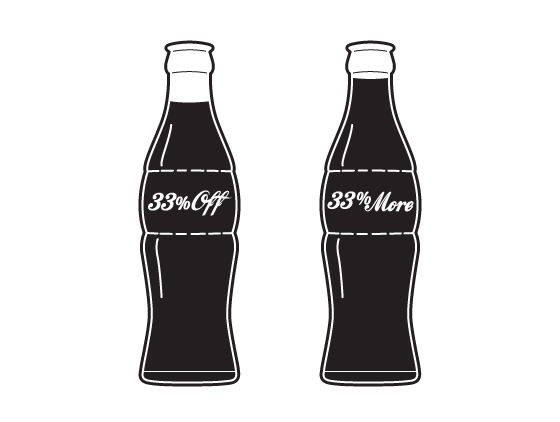I struggled all my studying years with MATH (Mental Abuse to Humans). I was so bad at math that I had even developed a method of memorizing patterns to solve problems, so that I could apply them in case a similar question came up in the exam paper. If you were and are good at math, I have very high regards for you, because most of the human race is simply bad at it.
Consider these two promotions. One is a flat ‘33% off’ on the MRP. The other is 33% more quantity of the product free. In short – ‘33% extra free’. Are both similar? Which one seems more attractive to you?
If both are similar in terms of a proposition to you, but you still prefer ‘33% extra free’, you’re in the majority. In a study, Akshay Rao, the General Mills Chair in Marketing at the University of Minnesota’s Carlson School of Management, asked undergraduate students to evaluate two deals on loose coffee beans — one with 33% more beans for free, the other at 33% off the price. All the participants chose ‘33% extra free’, inspite of ‘33% off’ being a quantitatively bigger and better offer favouring the customer. (33% off = 50% extra free)
The reason why we opt for ‘33% extra free’ is not just that we suck at math, but we are also infatuated with the idea of getting something for free. It seems as if the power of ‘free’ makes us worse at math.
Now, how you take advantage of this will depend on whether you are a consumer or a marketer.

Not necessarily. Depends on what I’m buying and what my consumption patterns are. If I’m buying a shirt, 33% more doesn’t make sense to me. Hence, I’ll go for the discount offer. If I’m buying coffee, 33% more for the price I normally pay might attract me. Moreover, if my coffee consumption is heavy/high, the 33% more offer will be valued more. If I’m an occasional coffee drinker, I’d rather go for the instant saving that the 33% discount promises. What I mean is, the ‘33% proposition’ has to be given context.